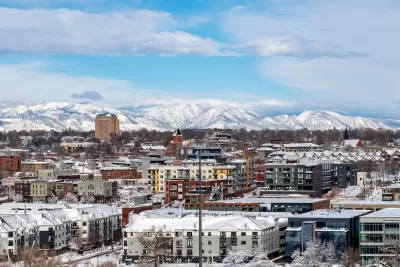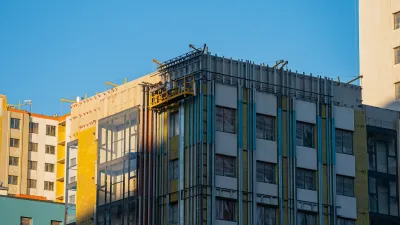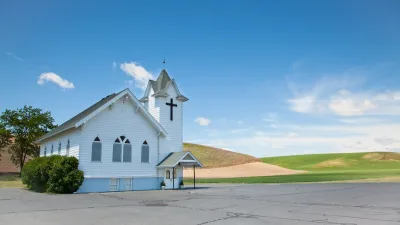The little-known Green and Resilient Retrofit Program funds upgrades and repairs that improve efficiency and comfort in existing housing stock.

An obscure federal program known as the Green and Resilient Retrofit Program (GRRP) is helping nonprofit housing developers in Denver stay afloat by providing grants to support the renovation of affordable housing properties.
As Robert Davis explains in a piece for Next City, the little-known program, administered by the Department of Housing and Urban Development (HUD), was created by the 2022 Inflation Reduction Act and has paid out over $1.4 billion. “HUD-supported affordable housing providers can apply for up to $80,000 per unit in funding. The money must be used on upgrades that make the properties more resilient to climate hazards and improve residents’ quality of life.”
According to Michelle Diller, the senior program director for Building Resilient Futures at Enterprise Community Partners, “GRRP is the only HUD program to combine climate resiliency with green energy retrofits” and is “a forward-looking program that seeks to extend the lifetime of affordable housing units instead of simply repairing damages.” The program provides a key financial lifeline to offset rising operating costs for affordable housing providers and offers the chance to install retrofits that reduce future operating costs.
FULL STORY: A Little-Known Federal Program Is Keeping Senior Housing Affordable in Denver

Trump Administration Could Effectively End Housing Voucher Program
Federal officials are eyeing major cuts to the Section 8 program that helps millions of low-income households pay rent.

Planetizen Federal Action Tracker
A weekly monitor of how Trump’s orders and actions are impacting planners and planning in America.

Ken Jennings Launches Transit Web Series
The Jeopardy champ wants you to ride public transit.

California Invests Additional $5M in Electric School Buses
The state wants to electrify all of its school bus fleets by 2035.

Austin Launches $2M Homelessness Prevention Fund
A new grant program from the city’s Homeless Strategy Office will fund rental assistance and supportive services.

Alabama School Forestry Initiative Brings Trees to Schoolyards
Trees can improve physical and mental health for students and commnity members.
Urban Design for Planners 1: Software Tools
This six-course series explores essential urban design concepts using open source software and equips planners with the tools they need to participate fully in the urban design process.
Planning for Universal Design
Learn the tools for implementing Universal Design in planning regulations.
Ada County Highway District
Clanton & Associates, Inc.
Jessamine County Fiscal Court
Institute for Housing and Urban Development Studies (IHS)
City of Grandview
Harvard GSD Executive Education
Toledo-Lucas County Plan Commissions
Salt Lake City
NYU Wagner Graduate School of Public Service





























